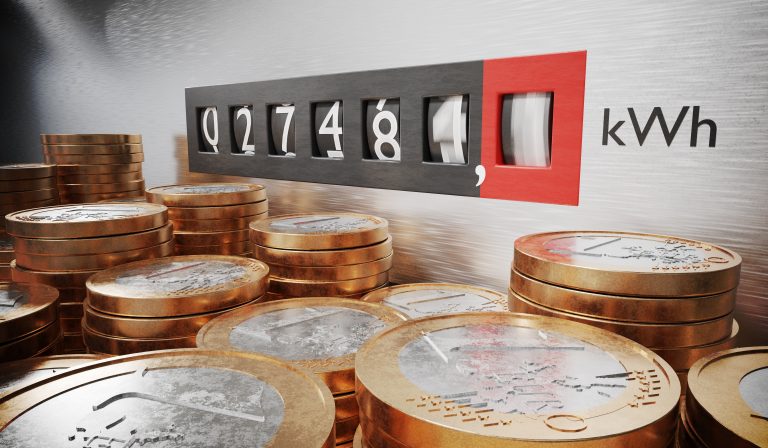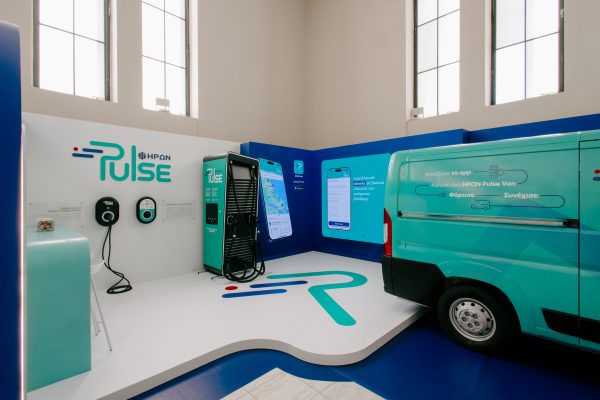
Greek households may be struggling to pay their electricity bills due to the large increases in kilowatt-hour prices triggered by the war in Ukraine, but compared to other European household consumers they enjoy lower prices.
This is according to data from the monthly European Household Energy Price Index (HEPI) survey for May. The price surveys were carried out in 33 cities across Europe and, according to them, Athens had a lower electricity price than the average of the sample and the EU.
More specifically, the price of a kilowatt hour was 0.2377 euros when the average of the 33 cities was 0.2574 euros and the average of the 27 EU countries was 0.2717 euros. In Athens, the price of the kilowatt-hour was 13% higher than in April but the capital of Greece remained in the low positions in terms of price levels and in particular it was in 16th place.
The most expensive electricity, as the graph shows, is paid by household consumers in London (0.4975 euro/kWh), Rome (0.4932 euro/kWh), Copenhagen (0.4871 euro/kWh), Vienna (0.4744 euro/kWh) and so on.
In Athens, electricity prices, despite the sharpness of the increases and gas price rises, remain low due to the subsidies provided by the government on household bills. The 13% increase recorded in the capital compared to April is attributed to the fact that the amount of the subsidy in May was lower. The highest increases in other EU cities were recorded in Ljubljana (29%) and Riga (26%).
Subsidies and the cap in prices
The Greek government is expected to continue its policy of subsidising electricity bills in June.
According to available information, the amount for household electricity bills is not expected to change much. It will be lower than the 56.6 euros in May and this is also due to the slight decrease in the wholesale electricity price.
However, the Greek government aims to further decrease prices from July 1 through its intervention mechanism, which includes capping the revenues of power generators and subsidising the final consumer’s bills.
According to reports, the Ministry of Environment and Energy is expected to have sent the legislative provision to the European Commission’s Directorate General for Competition by the end of the week, in order to get approval for its implementation.
Latest News

EasyJet Expands Its Routes from Athens
The airline’s two new routes will be to London Luton and Alicante and they will commence in summer 2025.

Capital Link Forum Highlights Greece’s Economic Resurgence; Honors BoG Gov Stournaras
Capital Link Hellenic Leadership Award recipient, Bank of Greece Gov. Yannis Stournaras, an ex-FinMin, was lauded for his pivotal role during Greece’s economic recovery

Tourist Spending in Greece Up by 14%, Visa Card Analysis Shows
Greece’s capital Athens emerged as the most popular destination, recording a 17% increase in transactions with Visa cards, surpassing even the cosmopolitan island of Mykonos.

Inflation in Greece Unchanged at 2.4% in Nov. 2024
The general consumer price index (CPI) posted a 0.4% decrease in November compared to the previous month

2024 Christmas Holidays: Extended Shop Hours Schedule
The 2024 Christmas Holidays extended shop hours schedule commences on Thursday, December 12 and runs until the end of the year.

ELSTAT: Seasonally Adjusted Unemployment Down in October
The number of employed individuals reached 4,284,694, an increase of 67,723 compared to October 2023 (+1.6%) and 22,002 compared to September 2024 (+0.5%).

Greek PM’s Chief Economic Adviser Resigns
In the post on his Facebook page, Patelis did not disclose the reasons that led him to step down.

“Masdar Invests in the people of Greece and in the vision of TERNA ENERGY”
Four messages from the CEO of Masdar, the Arab renewable energy giant, after its acquisition of 70% of TERNA ENERGY

Lloyd’s List Greek Shipping Awards 2024: Honors for leading companies and personalities in the Greek shipping sector
20 awards presented at the 21st annual Lloyd's List Greek Shipping Awards

Syria’s Bashar al-Assad, His family Granted Asylum by Russia
Reuters also reported that a deal has been struck to ensure the safety of Russian military bases in the war-ravaged country

















![Χειμερινή εξοχική κατοικία: Οι Ελληνες γυρνούν την πλάτη παρά την πτώση των τιμών [γραφήματα]](https://www.ot.gr/wp-content/uploads/2024/12/Capture-19-90x90.jpg)























 Αριθμός Πιστοποίησης Μ.Η.Τ.232433
Αριθμός Πιστοποίησης Μ.Η.Τ.232433